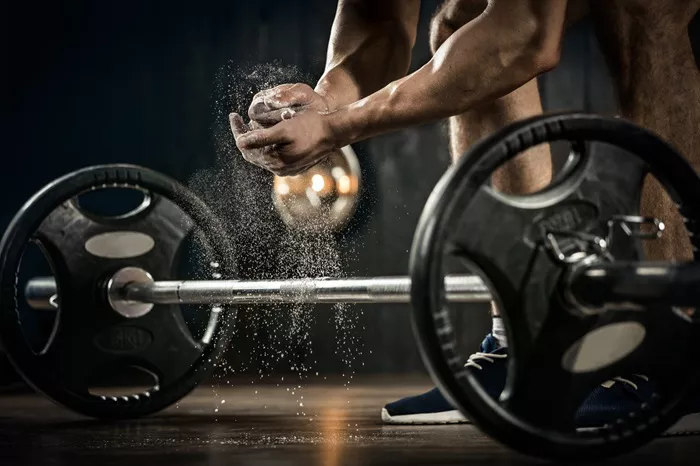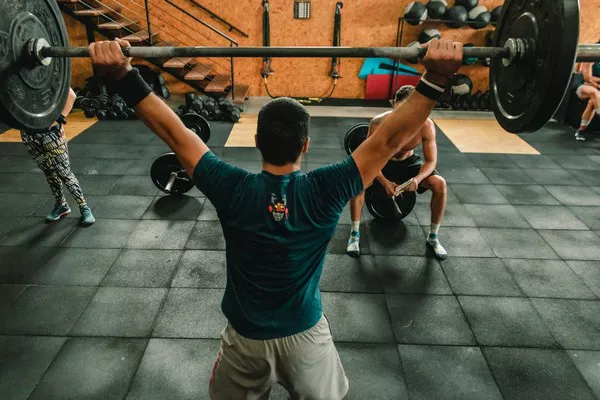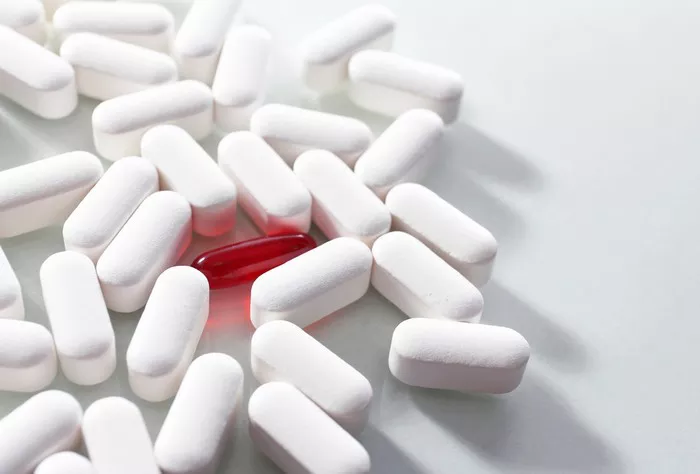Weight training is a popular method for building muscle, increasing strength, and improving overall fitness. One of the most crucial aspects of an effective weight training regimen is proper nutrition, with a particular focus on protein intake. Protein plays a vital role in muscle repair and growth, and understanding how much protein you need when weight training can significantly impact your results. This comprehensive guide will delve into the intricacies of protein requirements for weight training, covering everything from the basic functions of protein to specific recommendations based on various factors.
Understanding Protein and Its Functions
What is Protein?
Protein is a macronutrient composed of amino acids, which are the building blocks of the body. It is essential for various bodily functions, including muscle repair and growth, enzyme and hormone production, and immune system support. There are 20 different amino acids, nine of which are considered essential because the body cannot produce them and must obtain them from the diet.
The Role of Protein in Muscle Building
When you engage in weight training, you create micro-tears in your muscle fibers. Protein plays a critical role in repairing these micro-tears, leading to muscle growth and increased strength. This process is known as muscle protein synthesis (MPS). Adequate protein intake ensures that your body has the necessary amino acids to support MPS and facilitate muscle recovery and growth.
Determining Protein Needs for Weight Training
General Protein Recommendations
The Recommended Dietary Allowance (RDA) for protein is 0.8 grams per kilogram of body weight for the average adult. However, this recommendation is based on sedentary individuals and is not sufficient for those engaged in regular weight training. For athletes and those involved in resistance training, higher protein intake is necessary to support muscle repair and growth.
Factors Influencing Protein Requirements
1. Training Intensity and Frequency: The more intense and frequent your weight training sessions, the higher your protein needs. Intense workouts cause more muscle damage, requiring more protein for repair.
2. Body Weight and Composition: Heavier individuals and those with a higher lean body mass require more protein to maintain and build muscle.
3. Age: Older adults may need more protein to counteract age-related muscle loss (sarcopenia) and support muscle maintenance.
4. Gender: While both men and women need adequate protein, men typically require more due to generally having more muscle mass.
5. Goals: Whether your goal is to build muscle, lose fat, or maintain your current physique, protein needs will vary. Muscle building and fat loss typically require higher protein intake compared to maintenance.
Specific Protein Intake Recommendations
For Muscle Building
To maximize muscle growth, a common recommendation is to consume 1.6 to 2.2 grams of protein per kilogram of body weight per day. For example, a 70-kilogram individual should aim for 112 to 154 grams of protein daily.
For Fat Loss
When aiming to lose fat while preserving muscle mass, protein intake should be on the higher end of the spectrum. Consuming 2.2 to 2.4 grams of protein per kilogram of body weight can help maintain muscle mass during a calorie deficit.
For Maintenance
If your goal is to maintain your current muscle mass and overall physique, 1.4 to 1.8 grams of protein per kilogram of body weight is typically sufficient.
See Also: How Much Strength Training Should I Do to Lose Weight?
Timing and Distribution of Protein Intake
Importance of Protein Timing
While total daily protein intake is the most critical factor, the timing of protein consumption can also impact muscle protein synthesis. Distributing protein intake evenly throughout the day can help maximize muscle repair and growth.
Pre- and Post-Workout Protein
Consuming protein before and after your workouts can be particularly beneficial. Pre-workout protein provides amino acids to support muscle repair during exercise, while post-workout protein helps kickstart the recovery process. Aim to consume 20-40 grams of protein within 30 minutes to 2 hours after your workout.
Protein Distribution Throughout the Day
Instead of consuming a large amount of protein in one or two meals, aim to distribute your protein intake evenly across all meals and snacks. This approach helps maintain a steady supply of amino acids for muscle repair and growth. For example, if your goal is to consume 150 grams of protein daily, you might have 30 grams at breakfast, 30 grams at lunch, 30 grams at dinner, and 30 grams spread across snacks.
Sources of Protein
Animal-Based Protein Sources
1. Meat: Beef, pork, lamb, and other meats are rich sources of complete protein, providing all essential amino acids.
2. Poultry: Chicken, turkey, and other poultry are lean protein sources with high biological value.
3. Fish and Seafood: Fish such as salmon,tuna, and cod, as well as shellfish, are excellent sources of protein and omega-3 fatty acids.
4. Dairy: Milk, yogurt, cheese, and other dairy products provide high-quality protein along with calcium and other nutrients.
5. Eggs: Eggs are a versatile and complete protein source, containing all essential amino acids.
Plant-Based Protein Sources
1. Legumes: Beans, lentils, chickpeas, and peas are rich in protein and fiber, making them excellent plant-based protein sources.
2. Nuts and Seeds: Almonds, walnuts, chia seeds, and hemp seeds provide protein along with healthy fats and other nutrients.
3. Soy Products: Tofu, tempeh, edamame, and soy milk are high in protein and can be used in various dishes.
4. Grains: Quinoa, amaranth, and farro are grains with relatively high protein content.
5. Vegetables: Certain vegetables, such as broccoli, spinach, and Brussels sprouts, contain small amounts of protein and contribute to overall protein intake.
Protein Supplements
1. Whey Protein: Derived from milk, whey protein is a fast-digesting protein that is popular among athletes and bodybuilders.
2. Casein Protein: Also derived from milk, casein protein is slow-digesting and can be beneficial for prolonged muscle protein synthesis.
3. Plant-Based Protein Powders: Pea protein, rice protein, and hemp protein are common options for those following a plant-based diet.
4. Protein Blends: Some supplements combine different protein sources to provide a balanced amino acid profile and varied digestion rates.
Practical Tips for Meeting Protein Needs
Meal Planning and Preparation
1. Plan Your Meals: Create a meal plan that includes high-protein foods in each meal and snack. This helps ensure you meet your protein needs consistently.
2. Batch Cooking: Prepare large quantities of protein-rich meals in advance to save time and ensure you always have a nutritious option available.
3. Portable Protein: Keep protein-rich snacks, such as protein bars, jerky, or Greek yogurt, on hand for convenient, on-the-go options.
Combining Protein Sources
1. Pairing Plant Proteins: Combine different plant-based protein sources, such as beans and rice, to create a complete amino acid profile.
2. Mixing Protein Powders: If using protein supplements, consider mixing different types of protein powders to benefit from their unique digestion rates and amino acid profiles.
Monitoring and Adjusting Intake
1. Track Your Protein Intake: Use a food diary or nutrition tracking app to monitor your daily protein intake and ensure you meet your goals.
2. Adjust Based on Progress: Regularly assess your progress and adjust your protein intake as needed. If you are not seeing the desired results, consider increasing your protein consumption.
Common Myths and Misconceptions About Protein Intake
Myth 1: High Protein Intake is Harmful to the Kidneys
This myth is based on outdated research. For healthy individuals, high protein intake is not harmful to the kidneys. However, those with pre-existing kidney conditions should consult with a healthcare provider to determine appropriate protein levels.
Myth 2: You Can Only Absorb a Certain Amount of Protein Per Meal
The body can utilize protein efficiently throughout the day. While muscle protein synthesis may reach a peak with 20-40 grams of protein per meal, the body continues to use excess protein for other functions.
Myth 3: All Protein Sources Are Equal
Not all protein sources are created equal. Animal-based proteins are typically complete proteins, containing all essential amino acids, while many plant-based proteins are incomplete and may require combining with other foods to ensure a complete amino acid profile.
Conclusion
Proper protein intake is essential for anyone engaged in weight training. By understanding your specific protein needs and incorporating high-quality protein sources into your diet, you can support muscle repair, growth, and overall performance. Remember to consider factors such as training intensity, body weight, age, gender, and goals when determining your protein requirements. Distribute your protein intake evenly throughout the day, utilize both animal and plant-based protein sources, and be mindful of common myths and misconceptions. With these guidelines, you can optimize your protein intake and achieve your weight training goals.
[inline_related_posts title=”You Might Be Interested In” title_align=”left” style=”list” number=”6″ align=”none” ids=”7006,5496,5474″ by=”categories” orderby=”rand” order=”DESC” hide_thumb=”no” thumb_right=”no” views=”no” date=”yes” grid_columns=”2″ post_type=”” tax=””]


































